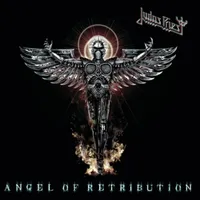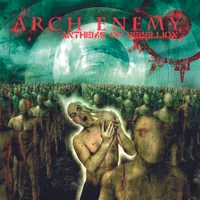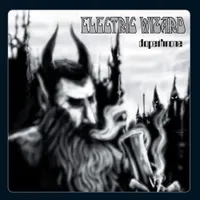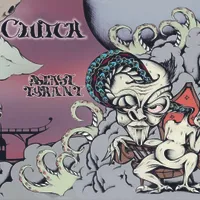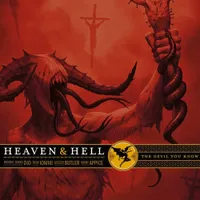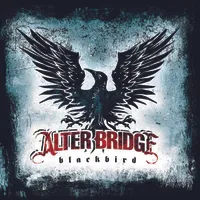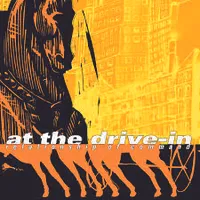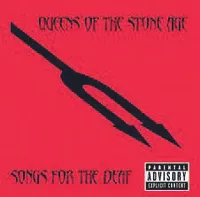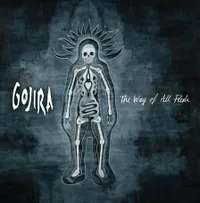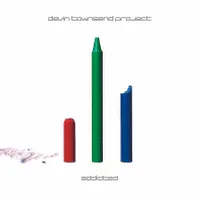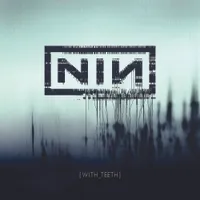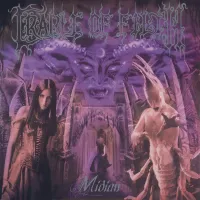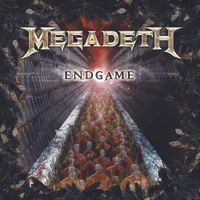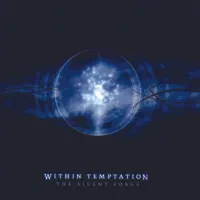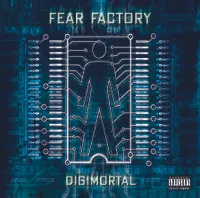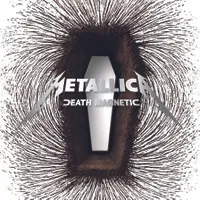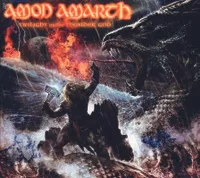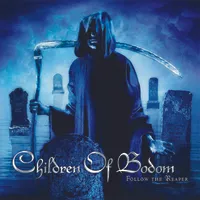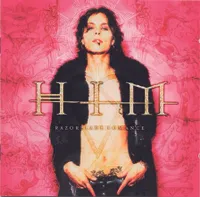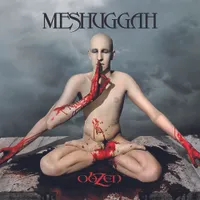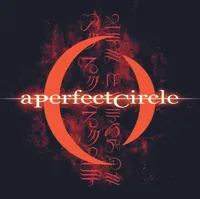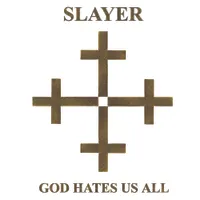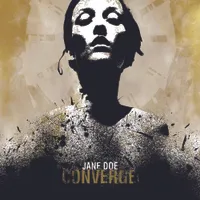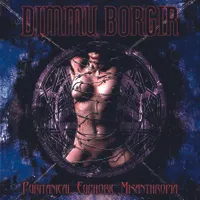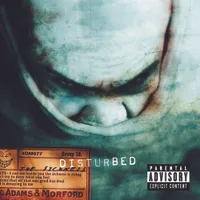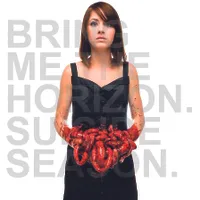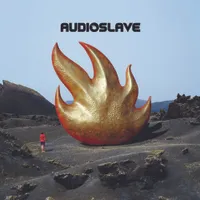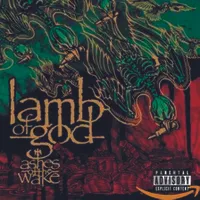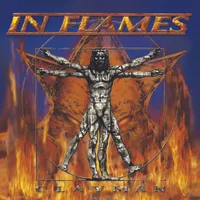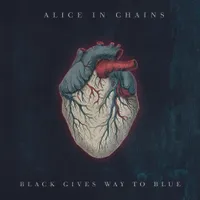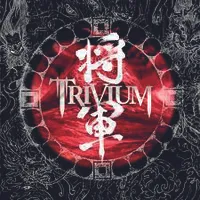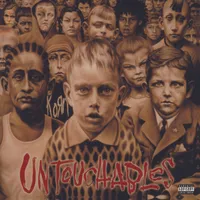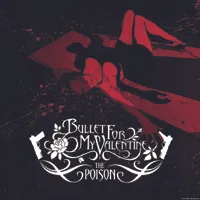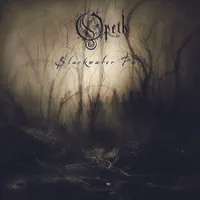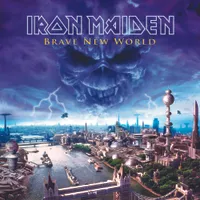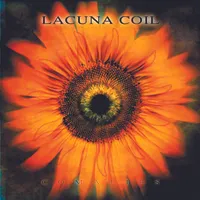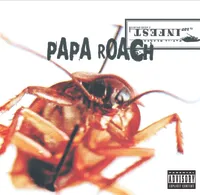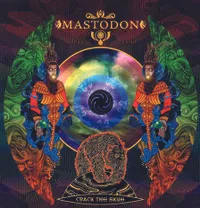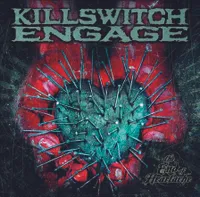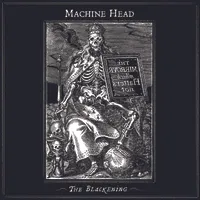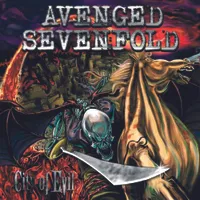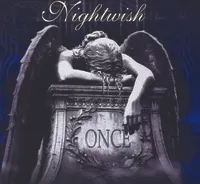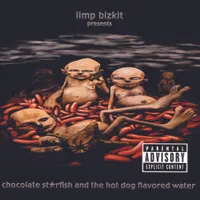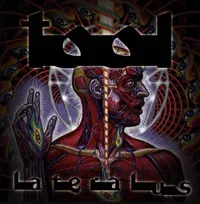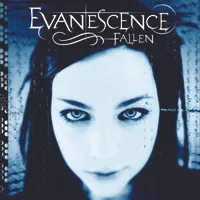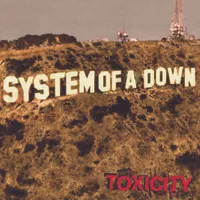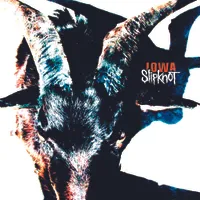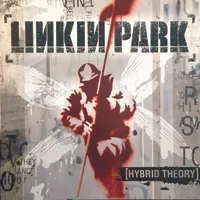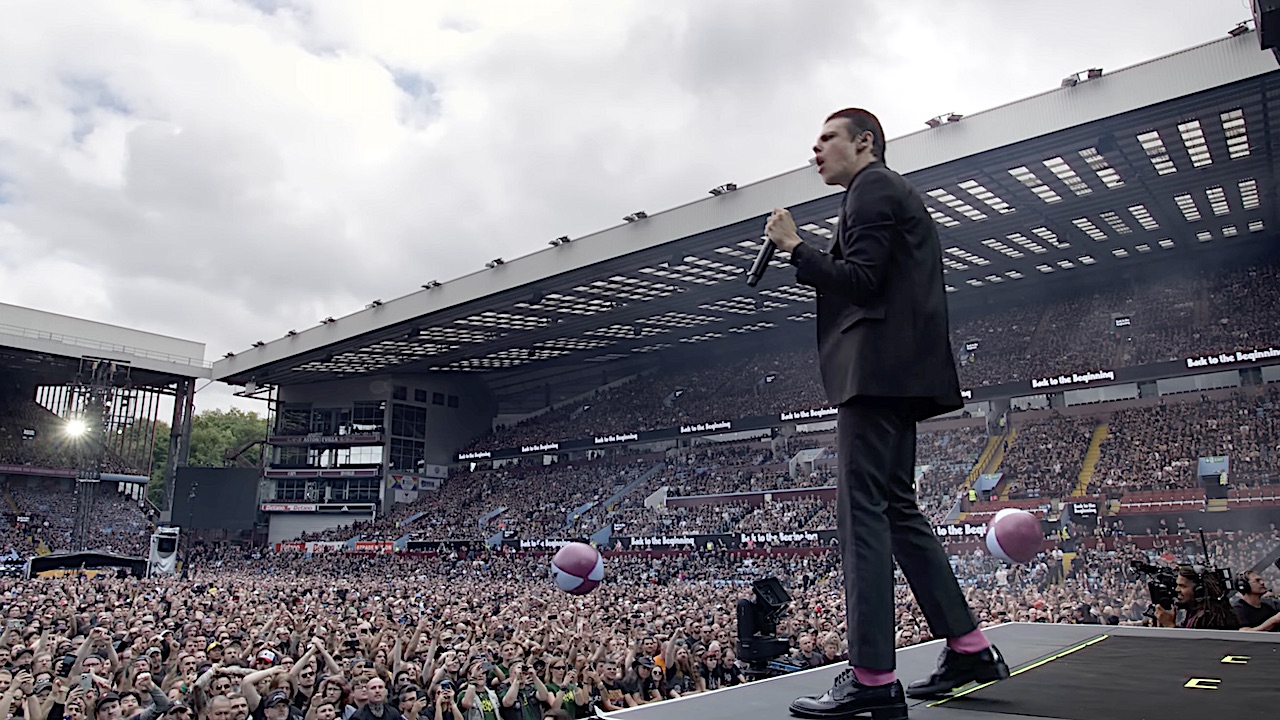The 50 best metal albums of the 2000s
From nu metal classics by Slipknot, Linkin Park and Limp Bizkit to metal legends like Iron Maiden and Judas Priest bouncing back in style, these are the albums that defined the 2000s
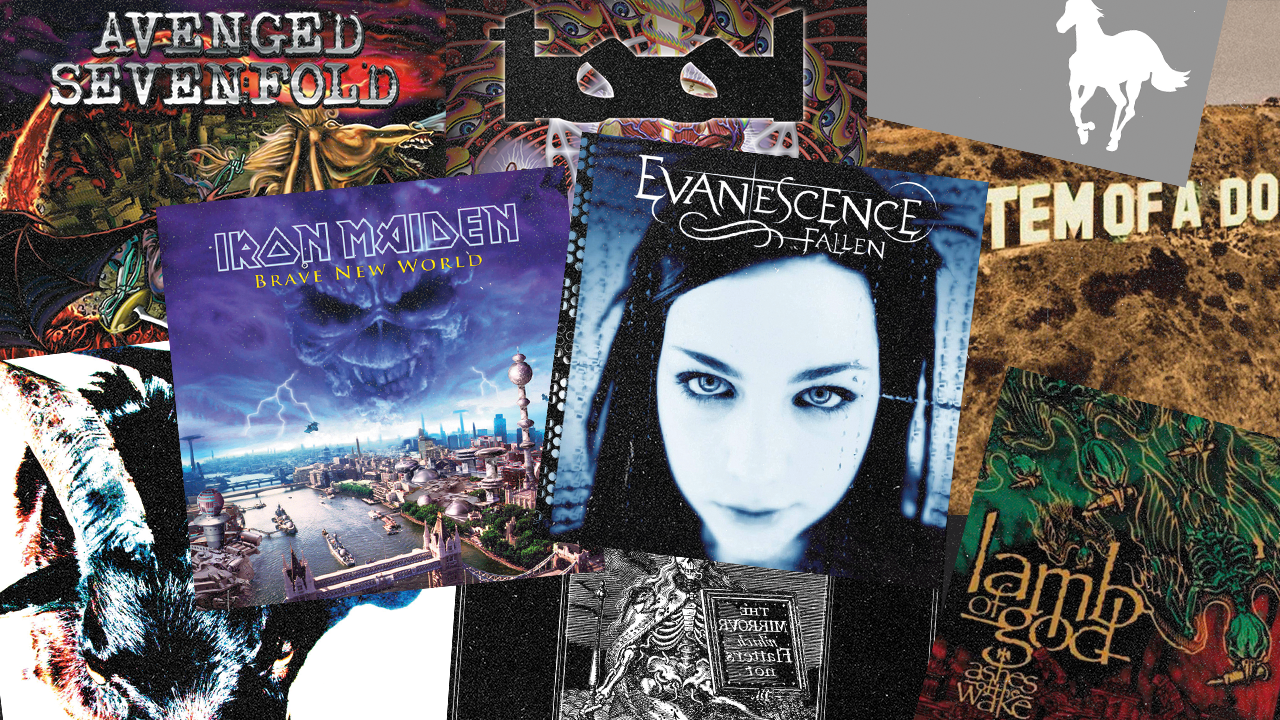
The 2000s were the decade where metal conquered the world, evolved into dazzling new forms and yet emphatically embraced its roots. From nu metal's chart-smashing dominance to the mighty comebacks of metal legends, all the way to the emergence of the New Wave Of American Heavy Metal and the rise of the scene's next generation, it was a fascinating ten year stretch full of twists, turns, colourful characters and some truly iconic records.
The latest issue of Metal Hammer magazine celebrates the 2000s in all their wild and wonderful glory, featuring brand new interviews with legends of the era and exclusive features on the moments that defined the decade. In honour, Hammer's intrepid team of writers banded together to nominate the 50 greatest metal albums of the 2000s. From Bizkit to Bullet For My Valentine, Maiden to Meshuggah, it's all here. Here are the records that made the cut.

50. Judas Priest - Angel Of Retribution (2005)
Rob Halford’s return to the mighty Judas Priest would have been seriously big news even if they hadn’t produced an album worthy of their legacy, but Angel Of Retribution’s urgency and fury picked up right where Painkiller left off back in 1990. The dual guitar assault of K.K. Downing and Glenn Tipton was as potent as ever, but Rob Halford’s shrieking histrionics felt like the Metal God truly reclaiming his kingdom.
Buy on Amazon
49. Arch Enemy - Anthems Of Rebellion (2003)
Following her Arch Enemy debut on 2001’s Wages Of Sin album, Anthems Of Rebellion introduced vocalist Angela Gossow to the metal world at large courtesy of battering lead single and the band’s most successful song
to date, We Will Rise. Gleamingly produced and riddled with hooks but still ferociously heavy, Anthems Of Rebellion is a major high point for early 2000s melodeath.
Buy on Amazon
48. Electric Wizard - Dopethrone (2000)
Inspired by the the works of legendary horror writer H.P. Lovecraft and powered by a buttload of hallucinogens, Jus Oborn set about crafting the bowel-shakingly heavy songs that'd ultimately set the bar for stoner-doom for the next decade. "I’d sit there, out of my brain, reading his stuff, and extrapolating on what he’d written," Oborn later told Metal Hammer. "It was amazing!" That it certainly was.
Buy on Amazon
47. Clutch - Blast Tyrant (2004)
Clutch had already evolved from a bunch of scrappy hardcore punks into a fantastic stoner blues band, but they’d never created such an undeniable set of anthemic bangers as they did on their sixth album. Blast Tyrant cut down on the jams and was instead comprised solely of massive groove riffs and Neil Fallon’s mad preacher hooks, converting many to the Church of Clutch.
Buy on Amazon
46. Heaven & Hell - The Devil You Know (2009)
Forget what the purists had to say: this was Black Fucking Sabbath, back on peak form. Ronnie James Dio, Tony Iommi, Geezer Butler and Vinnie Appice coming together for one final round proved to be a majestic move: not only was The Devil You Know brimming with colossal riffs, powering the inimitable, ageless vocals of Dio, but it sounded vital, relevant and as heavy as anything that decade had had to offer.
Buy on Amazon
45. The Dillinger Escape Plan - Ire Works (2007)
Prior to Ire Works, the idea of these mathcore provocateurs dealing in hooks, choruses and decipherable song structures appeared to be a ridiculous notion. But their third album took the wild, unhinged catharsis of their early work and somehow made it palatable and translatable to the bigger stages the band were now playing. It was still outrageously intense, of course, but also superbly catchy.
Buy on Amazon
44. Alter Bridge - Blackbird (2007)
Despite their brilliant debut, One Day Remains, Alter Bridge were still being unfairly dismissed due to their members' previous success in Creed. That all changed with Blackbird's magnificent blend of Mark Tremonti's virtuosity, Myles Kennedy's transcendent pipes and gallant anthems. The likes of Rise Today, Watch Over You and the epic title track were custom-made for 10,000 strong singalongs.
Buy on Amazon
43. At The Drive-In - Relationship Of Command (2000)
At The Drive-In’s delicious mix of post-hardcore energy, Latin rhythms, bizarre lyrical narratives and unhinged live performances was perfected on this, their third album, and was a welcome alternative to some of the formulaic nu metal clogging up the charts. The band seemed all set to become the Nirvana of the 2000s, but their musical cocktail (and drug habits) proved too combustible and, frustratingly, they imploded soon after Relationship Of Command’s release.
Buy on Amazon
42. Queens Of The Stone Age - Songs For The Deaf (2003)
Emerging from the ashes of Kyuss, QOTSA wowed the stoner crowd with their fuzzy, motorik debut before crossing over with 2000's drug-blasted Rated R. Wonderfully odd and blearily catchy, Songs For The Deaf catapulted them into the major leagues. It marked them as one of the planet's most formidable rock acts, and even lured Dave Grohl back behind the drum kit.
Buy on Amazon
41. Gojira - The Way Of All Flesh (2008)
Confirming Gojira as one of the single most exciting metal bands of their generation, The Way Of All Flesh honed their batteringly heavy assault and layered it with an extra sprinkling of hooks without losing a single ounce of the pummelling intensity or searing urgency that put the Frenchmen on the map to start with. European metal's next great leaders were officially crowned.
Buy on Amazon
40. The Devin Townsend Project - Addicted (2009)
When Devin says he’s writing an album, it usually means he’s actually writing four. Addicted was his second album of 2009 (lazy, frankly), following the ambient Ki, and saw him set out to make his most danceable-yet-heavy album to date. With an uplifting wall of sound and luscious vocals from the divinely talented Anneke van Giersbergen, we’d say he succeeded.
Buy On Amazon
39. Nine Inch Nails - With Teeth (2005)
After the painful creation of 1999’s mammoth double album, The Fragile, led to depression and stints in rehab, Trent Reznor returned six years later with a more streamlined and song- orientated Nine Inch Nails. The result was the most instantaneous and upbeat collection of songs he’d ever created. Trent’s signature self-loathing and revulsion remained, it was just channelled into club-ready ragers.
Buy on Amazon
38. Cradle Of Filth - Midian (2000)
By their fourth album, Cradle had already set out their theatrical stall as a unique force in extreme music. Midian saw them doubling down on the symphonic metal as usurpers like Dimmu Borgir encroached. It also saw them obsessing over horror writer Clive Barker’s mythical Midian - the place where the monsters go.
Buy on Amazon
37. Megadeth - Endgame (2009)
Megadeth fans were optimistic as the band readied their 12th album, but no one was expecting Endgame to be this magnificent. Dave Mustaine wrote some of his finest ever songs and every musician played his merry bollocks off throughout. Whether delivering thrash euphoria (This Day We Fight!) or plunging into dark, progressive waters (Endgame), this was an unequivocal triumph and one of the finest metal albums of not just the 2000s but of the 21st century so far.
Buy on Amazon
36. Within Temptation - The Silent Force (2004)
By the time Within Temptation released their third album, symphonic metal had found its voice, and the Dutch band were right there in the vanguard. Where 2000’s breakthrough, Mother Earth, had tempered its grandiosity with folkier elements, Sharon den Adel and co splashed some serious cash on the follow-up, enlisting an orchestra and full choir to help realise their grand vision. It was well worth it. The Silent Force saw the band tighten up every aspect of their sound, adding musical heft and glossy production to create a symphonic metal blockbuster. The album featured some of the band’s best-loved songs – namely Stand My Ground, Angels and Jillian (I’d Give My Heart) – but it was the cumulative effect of the album that announced Within Temptation as stars-in- waiting and helped kick the symphonic metal scene forward.
Buy on Amazon
35. Fear Factory - Digimortal (2000)
Despite the inclusion of the divisive Back The Fuck Up that paired the band’s musical cyber-terrorism with rappers Cypress Hill, Fear Factory’s distinctive drill-press metal drove hard on Digimortal. Guitars and vocals may have explored alt rock expansiveness as rhythms flirted with dance floors, but it still sounded like the Terminator trying to mine ear canals.
Buy on Amazon
34. Metallica - Death Magnetic (2008)
After 2003’s St. Anger got a richly deserved kicking from Metallica’s fans - mainly thanks to its appalling production job - The Four Horsemen teamed up with the biggest producer in the game, Rick Rubin, to try to get themselves back on track. Out were snare drums that sounded like a potato being lobbed at a pan; in were metal anthems and the return of solos. Hooray! Metallica were back, baby.
Buy on Amazon
33. Amon Amarth - Twilight Of The Thunder God (2008)
Even for a band with such a heroic recording output, Twilight Of The Thunder God was a watershed moment for the Viking-obsessed Swedes. Their meticulous melodic death metal rallying cry spread to new realms, thanks to the heroic storytelling of the title track and Guardians Of Asgaard, with frontman Johan Hegg becoming a poster boy for a generation of berserkers.
Buy on Amazon
32. Children Of Bodom - Follow The Reaper (2000)
Everything anyone could ever want from a ludicrous extreme metal album was lobbed out over the nine songs and 38 minutes that made up Children Of Bodom’s third album. Alexi Laiho’s neoclassical guitars and Janne Wirman’s keyboards were in perfect sync, each player melodic, technical and seamlessly seguing into the other. Extreme metal may present itself as evil, but this masterstroke zeroed in on the silliness at its heart and cranked it up to 11 for the world to adore.
Buy on Amazon
31. HIM - Razorblade Romance (2000)
Frontman Ville Valo really hit his lovelorn, melancholic stride on Razorblade Romance, Him’s second album. With the trifecta of heart-stopping melodies, ardently poetic lyrics and fuck-off riffs, the album sent the Finns into the stratosphere, going to No.1 in their home country as well as others. Gothic romance in excelsis.
Buy on Amazon
30. Meshuggah - Obzen (2008)
Most of the 00s saw Meshuggah arguably stuck in a holding pattern – well, as much as inertia can plague Umeå’s patrons of the polyrhythm, that is. But Obzen quickly dispelled all notions of paralysis as it distilled the rubber- scalding speed, monochromatic bellowing, space age soloing and herky-jerky rhythmic complication of their previous five albums into one explosive package.
29. A Perfect Circle - Mer De Noms (2000)
Who would have thought that a side- project founded by a guitar tech would become one of the nascent century’s most iconic acts? Billy Howerdel went from turning pegs for Nine Inch Nails and The Smashing Pumpkins to crafting towering anthems with Tool’s Maynard James Keenan, in a band that offered their own unique and influential take on 2000s alt rock.
28. Slayer - God Hates Us All (2001)
After critics and fans lambasted Slayer for Diabolus In Musica’s uncharacteristic experimentation, the band put their heads down with the intent of peeling back flesh and writing some of the rawest high-speed thrash and mid-paced churning of their career. Result! However, this violent album happened to be released on 9/11, with Slayer suddenly finding themselves knee-deep in controversy.
Buy on Amazon
27. Converge - Jane Doe (2001)
Alongside the likes of Botch, Cave In and The Dillinger Escape Plan, Converge spent the late 90s messily rewiring metallic hardcore. Here their incendiary work exploded outward, rewriting the rulebook for metal, grind and hardcore alike. A monstrous, pained epic that remains a benchmark to this day, the album spawned countless copycats and innumerable Jane tattoos.
26. Dimmu Borgir - Puritanical Euphoric Misanthropia (2000)
Cementing their now classic line-up and employing an orchestra for the first time, the Norwegians’ fifth album found them severing any remaining, threadbare links with the black metal underground. Gloriously bombastic and sumptuously produced, Dimmu Borgir’s opulent scope and ambition was finally realised, setting the stage for the symphonic metal arms race that would begin.
25. Disturbed - The Sickness (2000)
Emerging alongside the likes of Linkin Park and Papa Roach, Disturbed were seen as part of nu metal’s second major ejaculation, even if they kicked against the tag. To be fair, they did always have a classic metal leaning, while vocalist David Draiman’s baritone boom and operatic wail extended far beyond the usual Cookie Monster growls and raps of many of his peers. There were enough binary riffs and chunky, syncopated grooves to fit in with the musical landscape of the day, though, and – propelled by the irresistible crunch and unmistakable ‘Ooh-wah-ah-ah-ah’ intro of second single Down With The Sickness – they
became one of the biggest-selling bands of the nu metal era. They also divided opinion, becoming the band the music media loved to hate even as their debut album headed for multi-platinum status and Down With The Sickness got wallet chains and ultra-baggy JNCO jeans swinging on dancefloors worldwide.
24. Bring Me The Horizon - Suicide Season (2008)
BMTH’s debut, Count Your Blessings, was the sound of kids making a noise in their room, but this follow-up album hinted that they would become something bigger and better. The spasmodic digital effects synonymous with the band crept in alongside the usual gang vocals and beatdowns, while Chelsea Smile’s vocal hook is a winner to this day, and the title track’s eight-minute duration is a sprawling display of sonic misery. The sound of a band starting to push at the boundaries of who they are.
Buy on Amazon
23. Audioslave - Audioslave (2002)
They were the rhythm section of Rage Against The Machine with the singer from Soundgarden. Yet, somehow Audioslave were even more than the sum of their parts, tapping into the sheer enormity of 70s stadium rock while infusing it with the fragility of grunge, never losing sight of the fact they were rock stars in the truest sense. Supergroups seldom come bigger or better.
Buy on Amazon
22. Lamb Of God - Ashes Of The Wake (2004)
Taking up where Pantera left off, Lamb Of God had shouldered hulking, groove-laden metal into the 21st century. Ashes... was their major label breakthrough, given extra heft by producer Machine and inspired to new levels of anger by the unfolding war in Iraq. Metal had rarely sounded so brutally compelling.
21. In Flames - Clayman (2000)
Proving that death metal could sound stadium-sized with the right production and big enough songs, In Flames and chief collaborator Fredrik Nordström polished up their hooks and drizzled them in synths, creating the catchiest set of tunes extreme metal had ever produced. So perfected was the Swedes’ formula by this point that it has influenced generations of metalcore bands ever since.
Buy on Amazon
20. Alice In Chains - Black Gives Way To Blue (2009)
Alice In Chains without frontman Layne Staley seemed like an insane, impossible idea, but when the band's remaining members found vocalist William DuVall and channelled their feelings of loss and grief for their fallen bandmate, it resulted in one of the greatest comeback albums of the decade. Black Gives Way To Blue is a beautiful, often difficult, listen that regenerated an iconic 90s band for a new decade.
Buy on Amazon
19. Trivium - Shogun (2008)
Career wobble? What career wobble? Following their scintillating rise on the back of career- making second album Ascendancy and that Download performance, things were looking decidedly dodgy for Trivium after divisive follow-up The Crusade. But Shogun put the Florida band back on course and then some, building on what they’d achieved two albums earlier. Ascendancy had the romantic backstory, but Shogun matched it for songwriting, and trumped it in terms of scope and ambition. As epic and adventurous as the ancient mythology that inspired the songs, the band’s ambitious ideas are fully realised on the prog-laden mini-saga of Kirisute Gomen and the jaw-dropping closing title track – the latter’s frankly absurd crescendo arguably remains the band’s best moment to date. Trivium went into Shogun with everything to play for and emerged victorious. It put them at the top of the 21st century’s metal elite, where they remain today.
18. Korn - Untouchables (2002)
The stats around Untouchables’ conception are eye- watering: costing more than $3 million to make, it still stands as one of the most expensive albums in history, catching Korn at their ambitious, defiant apex. Determined to make their grandest album yet, the band threw the kitchen sink at it; while the record itself disappointed commercially, sonically it sounded (and still sounds) gargantuan.
17. Bullet For My Valentine - The Poison (2005)
The Poison owes more to the post-hardcore stylings of fellow Welshmen Funeral For A Friend than to Converge or KSE, but the intoxicating mix of raw emotion, sweeping riffs and undeniable hooks made Bullet feel like champions from the off, the defiant roar of Her Voice Resides signalling that the US’s dominance of metalcore wouldn’t go as uncontested as it had for nu metal.
Buy on Amazon
16. Opeth - Blackwater Park (2001)
The Swedes had arrived half a decade earlier as a brutal, if complex, death metal band before mutating into something else entirely. Refining their revolutionary take on extremity, Blackwater Park effortlessly moved between some of the most evocative riffs ever written and heartbreaking emotional depths in the most consummate fashion.
Buy on Amazon
15. Iron Maiden - Brave New World (2000)
Viewed from a distance, the Blaze Bayley era wasn’t terrible, but fans seriously rejoiced when frontman Bruce Dickinson and guitarist Adrian Smith returned to the fold. The reunion also resulted in Maiden’s finest album since the 80s. Brave New World was their first step into a new age that would see them regain their place at the top of the metal pile.
Buy on Amazon
14. Lacuna Coil - Comalies (2002)
Lacuna Coil’s third album, Comalies, was not just a breakthrough for them commercially, but a benchmark for gothic metal in general. With Cristina Scabbia’s haunting, crystalline vocal at its heart, rounded out by grooving guitars and the vitriolic growls of Andrea Ferro, the album is a true cornerstone of the genre. In fact, it’s so good they re-recorded it in 2022.
Buy on Amazon
13. Papa Roach - Infest (2000)
Their debut album barely made an impression, but after a 1999 demo bagged them a major label deal with Dreamworks, Papa Roach made the most of their opportunity, writing an album’s worth of songs that a) directly appealed to angst-powered, millennial rock fans and b) absolutely slapped. The legacy of lead single Last Resort looms large today: more than a billion streams and counting? Sure.
Buy on Amazon
12. Mastodon - Crack The Skye (2009)
Any of Mastodon’s other 00s releases (Remission, Leviathan, Blood Mountain) could lay claim to being their crown jewel of the decade, but Crack The Skye is where the Atlantans irreverently explored their prog/classic/space rock aspirations and fantasies. That sonic and visual Easter eggs are still being discovered to this day speaks to the lush engagement the band’s fourth album provided.
Buy on Amazon
11. Killswitch Engage - The End Of Heartache (2004)
Losing singer Jesse Leach just as they were gaining momentum could have killed a lesser band, but Killswitch were made of sterner stuff. Enter Howard Jones: a honey-throated crooner whose romantic lyrics attracted metalcore fanatics and emo diehards in equal measure. Adam D crafted another bucketload of insta-classic bangers, and one of the 2000s’ most influential metal records was born.
Buy on Amazon
10. Machine Head - The Blackening (2007)
2003’s Through The Ashes of Empires might have halted the downward momentum of Machine Head’s career, but no one saw The Blackening coming. Robb Flynn’s men crafted
as perfect a 2000s metal album as anyone could have wished for, all thrashing, pummelling, labyrinthine riffs and fist-pumping, euphoric calls to arms. Those Master of Puppets comparisons that followed it around were justified.
Buy on Amazon
9. Avenged Sevenfold - City Of Evil (2005)
City Of Evil didn’t just reinvent Avenged Sevenfold’s sound by injecting it with lashings of swaggering rock’n’roll and even more twin-guitar histrionics; it also saw Orange County’s finest fully embrace their starring role as metalcore’s cockiest, most rock star-ish band. The likes of Bat Country and Beast And The Harlot have rightly become regarded as generational classics.
Buy on Amazon
8. Nightwish - Once (2004)
The album that catapulted these Finnish symphonic metal trailblazers to stardom overseas would also be the last they recorded with original vocalist Tarja Turunen. With some of their most radio-friendly tracks (see: Nemo) as well as their most ambitious (Ghost Love Score), Once is the sound of a band throwing absolutely everything they’ve got at a record, and a fine swansong for Tarja.
Buy on Amazon
7. Limp Bizkit - Chocolate Starfish And The Hot Dog Flavored Water (2000)
Love it or hate it, you couldn’t ignore it: Chocolate Starfish... represented the End Of Level Boss of nu metal’s evolution from subversive, fringe newcomer of metal to the globe-straddling, obnoxious behemoth it became. Packing enough classics to fill a greatest hits set, it sold more than a million copies in a week, confirming Bizkit as the biggest rock band of their g-g-generation.
Buy on Amazon
6. Tool - Lateralus (2001)
The moment Tool completed their metamorphosis from alt metal agitators to prog metal masterminds, Lateralus showed them at their most complex and intelligent, the band somehow shining even brighter with their architectural song structures and Fibonacci-sequence inspired riffs. Even more impressively, Schism, Parabola and Lateralus itself showed they hadn’t lost their touch for massive, shit-kicking anthems amid the tantric melodies and spacey vibes.
Buy on Amazon
5. Evanescence - Fallen (2003)
On Evanescence’s debut album, pianist and mezzo-soprano Amy Lee sought to marry the melodrama of classical music with the stylings of hard rock and alternative. Together with collaborator Ben Moody, she crafted a truly unique offering in Fallen: with symphonic metal still somewhat confined to European shores, the combination of nu metal guitar riffs with rich orchestral elements (all real) and Amy’s powerful voice was too good to resist, and immediately broke into the Top 20 on multiple continents. Though the singer has expressed regret at the album’s more commercial moments (like the shoehorned-in rap on Bring Me To Life) in the years since, there’s no denying the impact of Fallen in paving the way for young female vocalists, and bringing gothic rock to the airwaves.
Buy on Amazon
4. Deftones - White Pony (2000)
The moment where Deftones stepped away from a nu metal scene that, as they expertly proved here, was fast running out of ideas. White Pony has gone on to become the Sacramento band’s definitive musical statement, but when
it was first released it took a while for some to get onboard, such was its grandiose leap from the chunky, staccato riffs of their previous work to this multi-layered, ambient soundscape and trip-hop-inspired masterpiece. The correlation with Radiohead’s equally revolutionary 1997 album OK Computer has been parroted to the point of exhaustion decades down the line, but it remains the bullseye comparison. Both were darker, more experimental and uniquely progressive without ever forgetting to serve their magnificent songs, putting both bands in
a field of one.
Buy on Amazon
3. System Of A Down - Toxicity (2001)
With their planned launch show descending into a riot and the 9/11 attacks occurring a week later, System Of A Down’s second album was born into turbulent times. The band learned they were headed for the No.1 US album slot on the day of the attacks and, while later records would deal with the fallout of 9/11, Toxicity provided a suitable soundtrack to the unfolding global chaos. Musically, it built on their 1998 self-titled debut, exploding in unpredictable patterns and defying easy nu metal classifications. Lyrically, it leaped like a frog on a hotplate, alighting on subjects including addiction and suicide (Chop Suey!), mandatory sentencing (Prison Song) and, uh, allegorical pogo sticks (Bounce). In the process it also established System as the biggest emerging metal band on the planet.
Buy on Amazon
2. Slipknot - Iowa (2001)
It wasn’t the intrusive press and ‘true metalhead’ gatekeepers pejoratively pigeonholing the boilersuited nonet as nu metal and the future thereof that sparked Iowa’s acrimonious darkness. Behind the scenes, Slipknot were suffering from the success of their self-titled 1999 debut. Personal relationships were frayed, substances were abused, crippling debt was accrued and members were having trouble managing being in the public eye. When they were eventually able to shut out the outside world – precisely the theme of People = Shit – and focus, what emerged was an all-encompassing volatility delivered via an overflowing handful of rallying-cry anthems that codified internal frustration and disgust in a way that connected with millions to the tune of gold and platinum sales around the world.
Buy on Amazon
1. Linkin Park - Hybrid Theory (2000)
If Korn's self-titled debut album defined nu metal in the 1990s, Linkin Park’s Hybrid Theory redefined it for the 2000s. Stripping back the frat-boy swagger that had come to define
the scene, the LA six-piece delivered an album that laid a layer of all-too-human angst over its hip hop/metal/industrial fusion. The result was a monster commercial hit that would do much to define the sound and style of the entire decade, influencing a generation of kids to form bands, among them Bring Me The Horizon and Architects. Part of Hybrid Theory’s success was its directness. Nu metal was becoming bloated on its own success – Limp Bizkit’s Chocolate Starfish..., released one week earlier, clocked in at a patience-testing 75 minutes. By contrast, this was the model of compactness at just 37 minutes, not one single second of which was wasted.
But brevity alone wasn’t what made it so great. Hybrid Theory’s impact was largely down the brilliance of its songs. Papercut, One Step Closer, Crawling, In The End, Points Of Authority – these were perfectly shaped anthems that were unafraid of leaning on other forms of music, whether it was the layered textures of electronic music or pop’s melodic endorphine rush. Then there was Linkin Park’s signature move: the deft vocal trade-off between singer Chester Bennington and rapper Mike Shinoda. Bands had featured two singers before, but rarely had they merged so seamlessly as they did here.
There was plenty of pushback, of course. The band were sneeringly written off in some quarters as a ‘boy band’, proving that gatekeepers were just as dumb back then as they are today. But no one could stop the tidal wave: from MTV to the dancefloor of your local rock club, Linkin Park were absolutely inescapable. Hybrid Theory went platinum in the United States within just three months; by the end of the 2000s it had sold a staggering 10 million copies.
Linkin Park’s subsequent journey would take many musical turns before it ended with the all-too-premature death of Chester Bennington in July 2017. Some of those turns took them further away from Hybrid Theory, others brought them back closer to it. They never quite captured the magic they did here, but then neither did anybody else.
Buy on Amazon
Sign up below to get the latest from Metal Hammer, plus exclusive special offers, direct to your inbox!

Merlin was promoted to Executive Editor of Louder in early 2022, following over ten years working at Metal Hammer. While there, he served as Online Editor and Deputy Editor, before being promoted to Editor in 2016. Before joining Metal Hammer, Merlin worked as Associate Editor at Terrorizer Magazine and has written for Classic Rock, Rock Sound, eFestivals and others. Across his career he has interviewed legends including Ozzy Osbourne, Lemmy, Metallica, Iron Maiden (including getting a trip on Ed Force One courtesy of Bruce Dickinson), Guns N' Roses, KISS, Slipknot, System Of A Down and Meat Loaf. He has also presented and produced the Metal Hammer Podcast, presented the Metal Hammer Radio Show and is probably responsible for 90% of all nu metal-related content making it onto the site.
- Matt MillsContributing Editor, Metal Hammer
- Catherine Morris
- Adam Brennan
- Paul Travers
- Dave Everley
- Dom LawsonWriter
- Rich Hobson
- Kevin Stewart-Panko
- Stephen HillWriter
- Alec ChillingworthWriter
